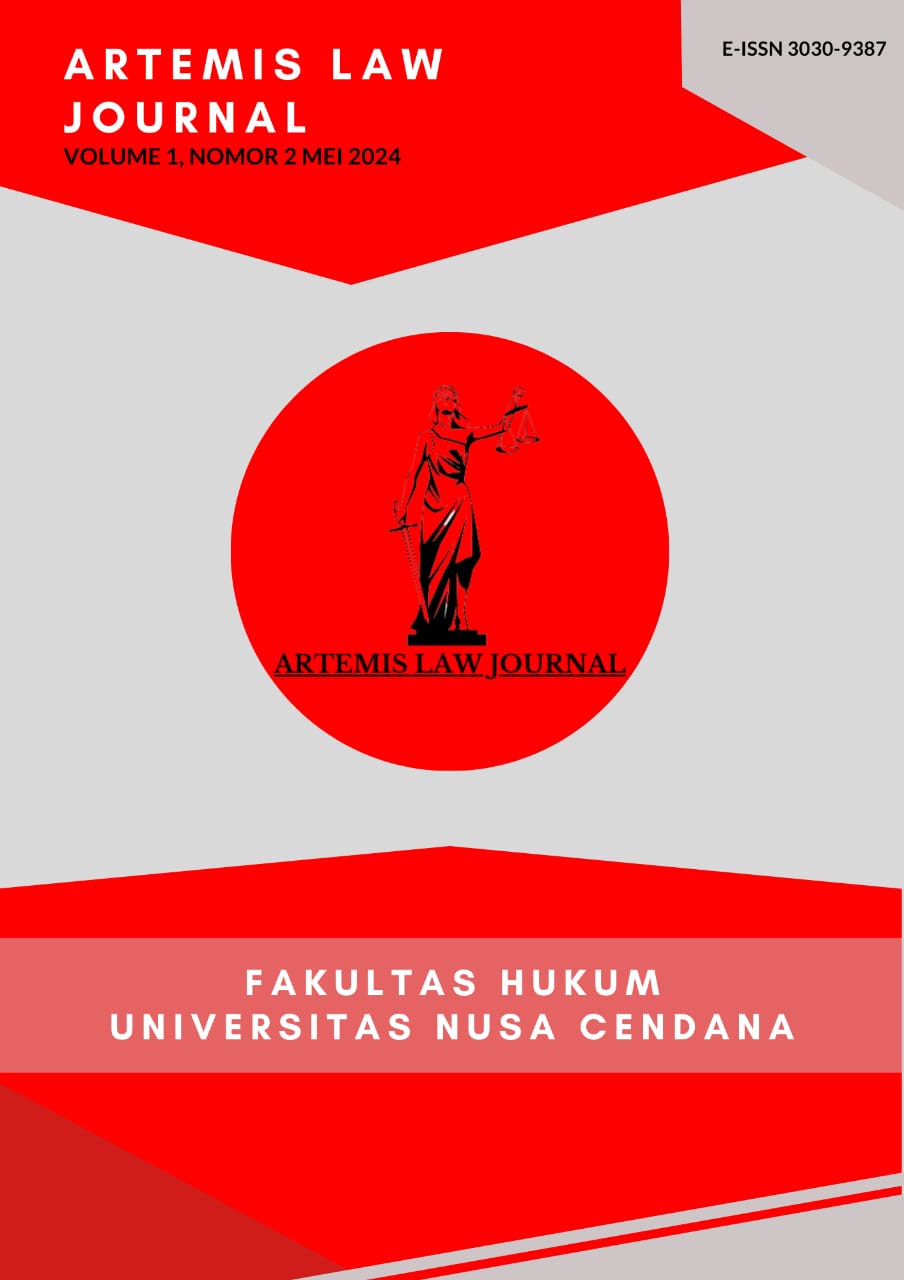Pelaksaan Perjanjian Jual-Beli Sepeda Motor Yang Masih Terikat Perjanjian Sewa-Beli Pada Perusahan Pembiayaan Ditinjau Dari Kitab Undang-Undang Hukum Perdata
Main Article Content
Abstract
The increasing prevalence of consumerist culture stimulates public interest in consumer financing, particularly in the purchase of motorcycles through credit systems. Non-bank financing institutions have become the primary choice due to their streamlined processes. The issues examined are: (1) How is the implementation of motorcycle lease-purchase agreements at consumer financing companies viewed in light of the civil code, (2) What are the legal consequences of motorcycle sales still bound by lease-purchase agreements at consumer financing companies according to the civil code. This research is normative legal research, utilizing theoretical foundations and legal materials consisting of primary, secondary, and tertiary legal materials, analyzed descriptively qualitatively. The research findings indicate: (1) The implementation of Motorcycle Lease-Purchase Agreements at Consumer Financing Companies, as Reviewed Under the Civil Code, employs the principle of contractual freedom, particularly through standard agreements, which are unnamed contracts stemming from the principle of contractual freedom. Article 1338 of the Civil Code stipulates that all agreements made apply as law to those who make them. (2) The Legal Ramifications of Selling Motorcycles Still Bound by Lease-Purchase Agreements at Consumer Financing Companies (Creditors), as Reviewed Under the Civil Code, entail such actions being deemed unilateral legal actions by consumer financing companies, thereby regarding the first party as still bound by the consumer financing agreement. This transfer contravenes Law Number 42 of 1999 concerning Fiduciary Guarantees, granting the financing company the right to undertake fiduciary execution measures, namely repossession of the motorcycle.

